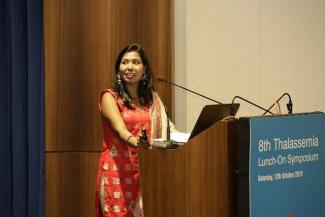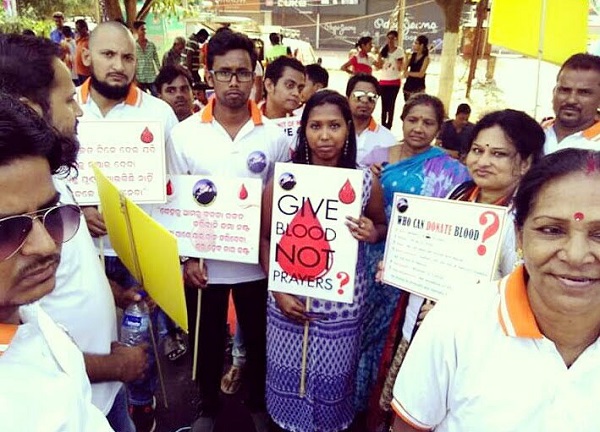
For Jharana Mallick, living with Thalassemia Major, an accident became an eye-opener and turning point of her life. Read how she has become a strong support for many thalassemia patients.
In 2015, at 21, while I was returning from work one day, I sustained a small knee injury due to a mishap on the road.I was living in Bhubaneswar at that time. I was taken to a general hospital, but I was being moved from ward to ward. In a couple of days, my wound turned septic. Doctors said my leg would have to be amputated. But fortunately I met another doctor, who was confident of healing the wound. Although I was bedridden for a year in excruciating pain and severe anxiety, my life and leg were saved.
Life lessons
For thalassemia major patients, infections are the second commonest cause of death because of low immunity. I know of friends with thalassemia who developed a crooked leg in case of a knee fracture, or went into coma during actreatment and died.
It was during the one-year battle to save my leg that thoughts of lesser privileged thalassemia patients began crossing my mind. I had a set regimen of getting transfusion twice a month, and never looked beyond that. But I realised that there were innumerable issues and difficulties being faced by thalassemics – from basics like availability of clean blood, provision of transfusion centres, health complications tofinancial, psychological, emotional and growth concerns. In the metros cities of India the situation is better, but in smaller towns conditions are quite pitiful.
Institutional Changes for thalassemia
So I started an organisation called Institution of Thalassemia and Disable Warriors, an advocacy group to reach out to thalassemia patients facing dire challenges and hardships or needing help.
Since I am for Orissa, we have started many of our initiatives there. We started small by organising blood donation drives and camps, providing medicines to needy patient and encouraging the local community to adopt a thalassemic child and bear their medical cost, promoting education and awareness programmes, encouraging people to adopt the medical expenses of a thalassemic person.
But we realised that along with our efforts, we needed the help of the government to bring about several institutional changes for bigger impact.It was then that I started coordinating with officials demanding presence of a day care and transfusion centre in all 30 districts of Orissa. This was to ensure patients did not have to miss out on transfusion and jeopardise their health.Since thalassemia is characterised by low levels of haemoglobin, abnormally low counts of red blood cells and anemia, regular transfusion is mandatory for survival.
Need for blood segregation
Our organisation gradually began to make a difference pan India. We were able to provide support to many patients in Jharkhand. In Madhya Pradesh, we networked with the government to stop the use of whole blood for thalassemia transfusion. Blood transfusion is the mainstay of care for individuals with thalassemia. Thalassemia patients need only red blood cells (RBC). The blood cells comprise a mixture of red blood cells (erythrocytes), white blood cells (leukocytes) and platelets (thrombocytes) and plasma. One unit of donated blood may be divided into four components to meet the needs of more than one patient.Whole blood or blood without leukodepletion is unsuitable or even harmful for regular transfusion. (Leucodepletion is a technical term for the removal of leucocytes from blood components using filters). Unfortunately, a good number of transfusion centres in India do not follow the procedures of segregating blood components.

Struggle during Covid-19
At present I am stranded in Delhi because of the lockdown. The number of calls seeking help have more than doubled during Covid-19 times. Besides battling fear and anxiety of personal health, thalassemia patients are also overcome with problems of reaching their transfusion centres, many of which have shut down. I must have organised a dozen passes for thalassemia patients desperately wanting access to transfusion centres or hospitals. I have also helped patients in other states source life-saving drugs and filters. Through my network, I have been able to organise blood donors during lockdown.
Now when I look back, I am glad for my accident because something valuable and worthwhile was born out of it.






